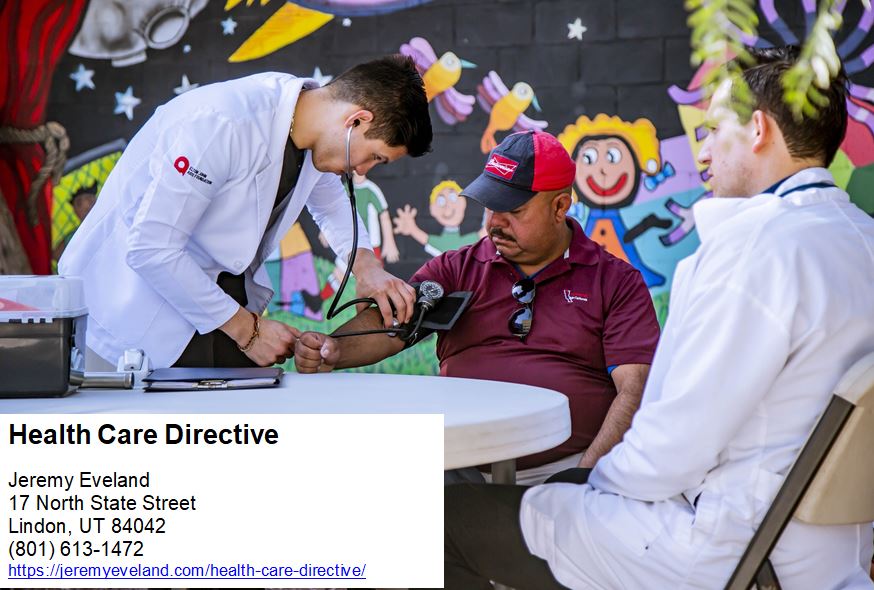Picture this: you have a clear vision for your future, a plan for every aspect of your life. But have you thought about what would happen if you were unable to make your own medical decisions? It’s a topic we often avoid, but it’s a crucial one. That’s where the Advance Health Care Directive comes in. This document allows you to specify your healthcare preferences and designate someone to make decisions on your behalf when you can’t. In this article, we’ll explore the importance of this legal document and how it can provide you with peace of mind. So, let’s dive in and ensure your voice is heard, even in the most challenging times.
What is an Advance Health Care Directive?
Definition
An Advance Health Care Directive is a legal document that allows you to communicate your medical preferences and make decisions about your healthcare in the event that you are unable to do so. It is a way to ensure that your wishes are respected and followed, even if you cannot express them at the time.
Purpose
The purpose of an Advance Health Care Directive is to provide clarity and guidance to your loved ones and healthcare providers regarding your medical treatment preferences. It allows you to maintain control over important decisions concerning your healthcare, ensuring that your values and wishes are respected.
Components
An Advance Health Care Directive typically consists of three main components: choosing a healthcare proxy, specifying health care preferences, and making end-of-life decisions. These components work together to ensure that your medical care aligns with your wishes and values.
Why is an Advance Health Care Directive important?
Ensures Personal Preferences
Having an Advance Health Care Directive allows you to clearly express your personal preferences regarding medical treatments and interventions. It ensures that your healthcare providers are aware of your desires, even if you are unable to communicate them at the time. This can provide peace of mind, knowing that your medical care will align with your values and preferences.
Relieves Burden on Family
An Advance Health Care Directive can relieve the burden on your family members who may otherwise be left to make difficult medical decisions on your behalf. By clearly outlining your wishes, you can alleviate any potential conflicts or uncertainties among your loved ones, allowing them to focus on providing support and comfort during challenging times.
Maintains Control over Medical Decisions
One of the most significant advantages of having an Advance Health Care Directive is the ability to maintain control over your own medical decisions, even if you are unable to communicate them. By clearly stating your preferences, you can ensure that your medical care aligns with your values, beliefs, and priorities. This empowers you to have a say in your own healthcare, even in circumstances where you cannot directly express your wishes.

Click Here For More Information
Who should have an Advance Health Care Directive?
Adult Individuals
All adult individuals, regardless of age or health status, should consider having an Advance Health Care Directive. Life is unpredictable, and anyone can face unexpected health challenges or emergencies. Having a directive in place ensures that your wishes are respected and followed, regardless of the circumstances.
Patients with Chronic Illnesses
Individuals with chronic illnesses, such as diabetes, heart disease, or cancer, often face complex medical decisions and treatments. Having an Advance Health Care Directive can provide clarity and guidance during these difficult times, allowing you to express your preferences and ensure that your healthcare aligns with your personal values.
Elderly Individuals
As we age, the likelihood of facing challenging medical decisions increases. It is common for elderly individuals to experience declining health and eventually face end-of-life decisions. By having an Advance Health Care Directive in place, elderly individuals can proactively plan for these situations and ensure that their wishes are known and respected.
Legal Requirements for an Advance Health Care Directive
Legal Capacity
For an Advance Health Care Directive to be legally valid, the individual creating the document must have legal capacity, which means they must be of sound mind and able to understand the implications of their decisions. It is important to create or update your directive while you possess the mental capacity to do so.
Clear Intent
The document must clearly express your intent and preferences. It should use plain language and avoid vague or ambiguous statements. By making your wishes explicit, you can help ensure that your healthcare providers and loved ones understand and respect your desires.
Witnesses and Notarization
To further ensure the validity and enforceability of an Advance Health Care Directive, it is often required to have witnesses present when the document is signed. Some jurisdictions may also require the document to be notarized. These requirements add an extra layer of legal protection, confirming that the document accurately represents your wishes.
Components of an Advance Health Care Directive
Choosing a Proxy
One of the most important components of an Advance Health Care Directive is choosing a healthcare proxy, also known as a healthcare agent or durable power of attorney for healthcare. This is an individual whom you trust to make medical decisions on your behalf if you become unable to do so. It is crucial to select someone who understands your values, preferences, and wishes, and is willing to advocate for them.
Specifying Health Care Preferences
Another vital component of an Advance Health Care Directive is specifying your health care preferences. This includes clearly indicating your preferences regarding specific medical treatments, such as resuscitation, life-sustaining measures, and the use of artificial nutrition and hydration. By providing clear guidance, you can ensure that your healthcare providers are aware of your preferences and can uphold them.
End-of-Life Decisions
End-of-life decisions play a significant role in an Advance Health Care Directive. This component allows you to express your wishes regarding life-prolonging treatments, palliative care, and decisions about organ donation. By making these decisions in advance, you can prevent potential conflicts and ensure that your desired level of care is provided.
Differences between Advance Health Care Directive and Living Will
Definition and Purpose
While an Advance Health Care Directive and a Living Will are similar in their goal of expressing medical preferences, they differ in their scope and flexibility. An Advanced Health Care Directive encompasses various aspects of medical decision-making, including appointing a proxy, whereas a Living Will typically focuses solely on end-of-life decisions.
Scope of Decision-Making
An Advance Health Care Directive allows you to make a wide range of medical decisions beyond end-of-life care. It covers situations where you may be unable to communicate your wishes, such as in the case of a severe illness or injury. A Living Will, on the other hand, specifically addresses end-of-life decisions related to life support and resuscitation.
Flexibility and Revisions
An Advance Health Care Directive offers more flexibility and can be updated or revised as your medical preferences change over time. It allows for ongoing communication and collaboration with your healthcare proxy and healthcare providers. A Living Will, once created, is typically a static document that focuses solely on end-of-life care decisions and may be more challenging to modify.

How to prepare an Advance Health Care Directive
Consulting an Attorney
To ensure that your Advance Health Care Directive meets all legal requirements and accurately reflects your wishes, it is advisable to consult an attorney experienced in this area of law. They can guide you through the process, provide information specific to your jurisdiction, and answer any questions you may have.
Discussing Medical Preferences
Before creating your Advance Health Care Directive, it is important to have open and honest conversations with your loved ones and healthcare providers. Discuss your medical preferences, values, and any concerns you may have. This will help ensure that your directive accurately represents your wishes and provide an opportunity for your loved ones to understand and support your decisions.
Completing the Document
Once you have consulted with an attorney and had discussions about your medical preferences, you can begin to complete your Advance Health Care Directive. Follow the instructions provided by your attorney or the document itself to ensure that it meets all legal requirements. Remember to sign and date the document, and don’t forget to have it witnessed and notarized if necessary.
How to ensure your Advance Health Care Directive is followed
Informing Loved Ones and Healthcare Providers
It is crucial to inform your loved ones and healthcare providers about the existence of your Advance Health Care Directive. Provide them with copies of the document and ensure they understand its contents. Discuss your wishes, and encourage open communication so that everyone involved is aware of your preferences and can fulfill them.
Storing and Sharing the Document
Make sure that your Advance Health Care Directive is easily accessible to those who need it. Keep a copy of the document in a secure yet easily retrievable location, such as a safe at home or with your attorney. Provide copies to your healthcare providers, including any hospitals or care facilities you regularly visit, and inform them of any updates or changes to the document.
Periodic Review and Updates
Regularly reviewing and updating your Advance Health Care Directive is essential. As your medical circumstances or preferences change, your directive should reflect these changes. Review the document annually or as significant events occur in your life. Consider reviewing it after major medical diagnoses, significant life events, or changes in your relationships.

Common Misconceptions about Advance Health Care Directives
Only for the Elderly or Terminally Ill
One common misconception is that Advance Health Care Directives are only necessary for the elderly or those with terminal illnesses. In reality, anyone can benefit from having a directive in place. Accidents, unexpected health crises, or incapacitating medical conditions can occur at any age, making it crucial to be prepared and have your wishes documented.
Revocation by Family Members
Another misconception is that family members can easily revoke or override an Advance Health Care Directive. While difficult family dynamics or disagreements can arise, legally executed directives typically hold significant weight. By involving your loved ones in the process and ensuring clear communication, you can help prevent potential conflicts and ensure that your wishes are respected.
Loss of Decision-Making Control
Some individuals worry that creating an Advance Health Care Directive means surrendering their decision-making control entirely. However, this is not the case. An Advance Health Care Directive provides a way for you to maintain control over your medical decisions, even if you cannot express them at the time. It ensures that your preferences guide your care and offers a meaningful way to have your voice heard.
Conclusion and Call-to-Action
Importance of Taking Action
An Advance Health Care Directive empowers you to have a say in your own healthcare, even when you cannot directly communicate your wishes. It ensures that your values, preferences, and priorities guide your medical care. By taking action and creating a directive, you can have peace of mind, knowing that your wishes will be respected and followed.
Contacting an Attorney for Assistance
If you have questions or need assistance in creating your Advance Health Care Directive, it is recommended to contact an attorney who specializes in estate planning and healthcare laws. They can provide you with personalized guidance, help you navigate the legal requirements, and ensure that your directive accurately represents your wishes. Take the next step today and seek the assistance you need to protect your future healthcare decisions.

